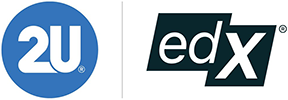The Executive and Management Coaching online short course from the University of Cape Town (UCT) is designed to equip individuals with the foundational skills necessary for effective coaching in various professional environments. This 12-week course offers an ideal blend of theoretical knowledge and practical tools, enabling students to either establish their own coaching practice or enhance their managerial approach with a coaching perspective. It’s created to meet the needs of those seeking to develop a personal coaching brand, build confidence, and effectively market themselves in the realms of business coaching, executive coaching, and leadership coaching.
One of the unique aspects of the UCT coaching course is its focus on practical application. You’ll observe five coaching meetings and engage in your own coaching sessions with fellow students. These sessions are integral to the course, counting towards credential hours and providing a hands-on opportunity to develop essential coaching competencies. This practical approach is complemented by the exploration of how technology can be leveraged in the digital age to deliver impactful coaching.
Throughout the course, you’re guided to assess and enhance your coaching abilities in both personal and business contexts. The curriculum covers selecting appropriate coaching models and tools, tailored to individual coaching styles and client needs. This process allows for a deep dive into various coaching phases, fostering the skills required for well-managed and effective coaching interventions. The course also delves into the ethics of coaching, guiding students in creating a personal coaching philosophy. By the end of the course, you’ll be able to craft a one-page biography that showcases your unique coaching brand and skill set.
The UCT executive coaching course is suitable for a wide range of individuals. It is particularly beneficial for executives, managers, and team leaders who wish to incorporate a coaching leadership style. Professionals considering a full-time coaching career, HR professionals looking to enhance their skill set, and existing coaches seeking to update and validate their skills with a UCT certificate will find immense value on this course.
What you'll learn
cquire valuable and relevant business coaching skills, and walk away with:
- Knowledge of coaching theories, models, philosophies, and methodologies
- A customised coaching toolkit tailored for various professional settings
- A one-page biography for effective self-branding and marketing
- Unlimited access to edX’s Career Engagement Network, providing exclusive resources and events for career development and advancement
Modules
ORIENTATION MODULE Welcome to your Online Campus.
Meet and engage with your learning and peer networks as you navigate the Online Campus.
Module 1 Assessing Yourself as a Coach
Understand and evaluate your ability as a coach.
Module 2 Mapping a Personalised Coaching Model
Choose an appropriate coaching model for your particular methodology and coaching partnership.
Module 3 The Initial Phase of Coaching
Implement core coaching competencies and skills to effectively conduct the contracting process during the initial phase of the coaching period.
Module 4 The Following Phase of Coaching
Refine your coaching competencies and skills to effectively facilitate the development phase of coaching.
Module 5 Building Your Coaching Toolkit
Assess the value of various coaching tools to support client development.
Module 6 Planning the Coaching Process
Evaluate the coaching intervention thus far to formulate an effective coaching process.
Module 7 Self-Management Techniques
Evaluate and build your self-awareness as a coach.
Module 8 Providing Support During the Action Phase of Coaching
Support your client to reach their coaching goals during the action phase.
Module 9 The Ethics of Coaching
Explore ethics and your role as a coach in various scenarios.
Module 10 The Final Phase of Coaching
Evaluate your client's progress and prepare for the closure of the coaching intervention.
Module 11 Reflecting on Your Development and Growth as a Coach
Evaluate the development of your coaching competencies and skills.
Module 12 Creating Your Brand as a Coach
Defining your coaching philosophy and methodology.
FAQs: Business coaching and mentoring career path
Executive coaching and mentoring involve guiding professionals, typically at the executive level, to enhance their leadership skills, achieve specific professional goals, and navigate complex business challenges. It focuses on personal development as well as organisational growth, often using a one-to-one, personalised approach.
An executive coach is a trained professional who works with individuals, usually in leadership or executive positions, to help them develop their skills, address professional challenges, and enhance their performance. These coaches provide support and guidance to improve leadership, communication, and management skills.
To become an executive coach, one typically needs a combination of relevant experience in business or leadership roles and formal training in coaching. Acquiring certification from a recognised coaching institution can also be beneficial, and it's essential to develop strong interpersonal and communication skills. The UCT Executive and Management Coaching online short course provides the fundamental skills and methodologies required to become an executive coach.
To start an online coaching business, begin by identifying your coaching niche based on your expertise and target audience. Develop a business plan, create a website or platform to offer your services, and use digital marketing strategies to reach potential clients. It's also important to establish a reliable digital infrastructure for conducting coaching sessions and managing client relationships effectively
